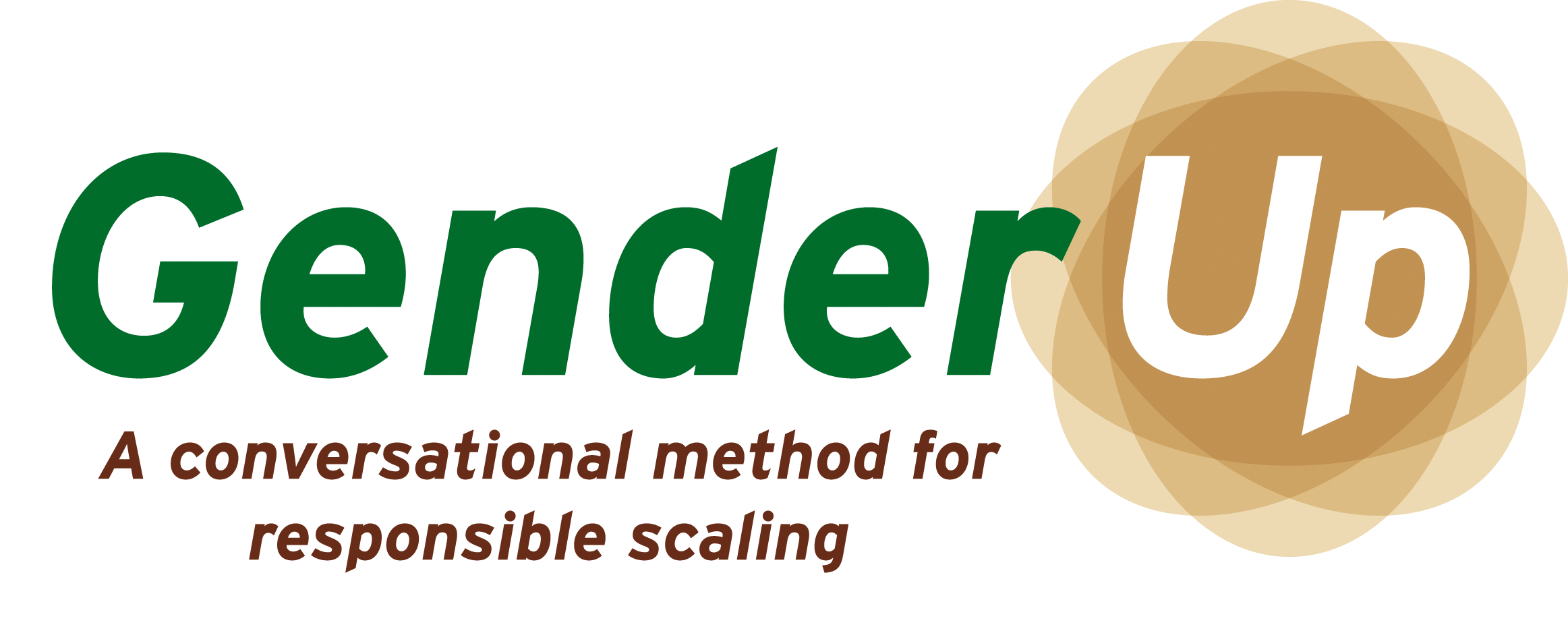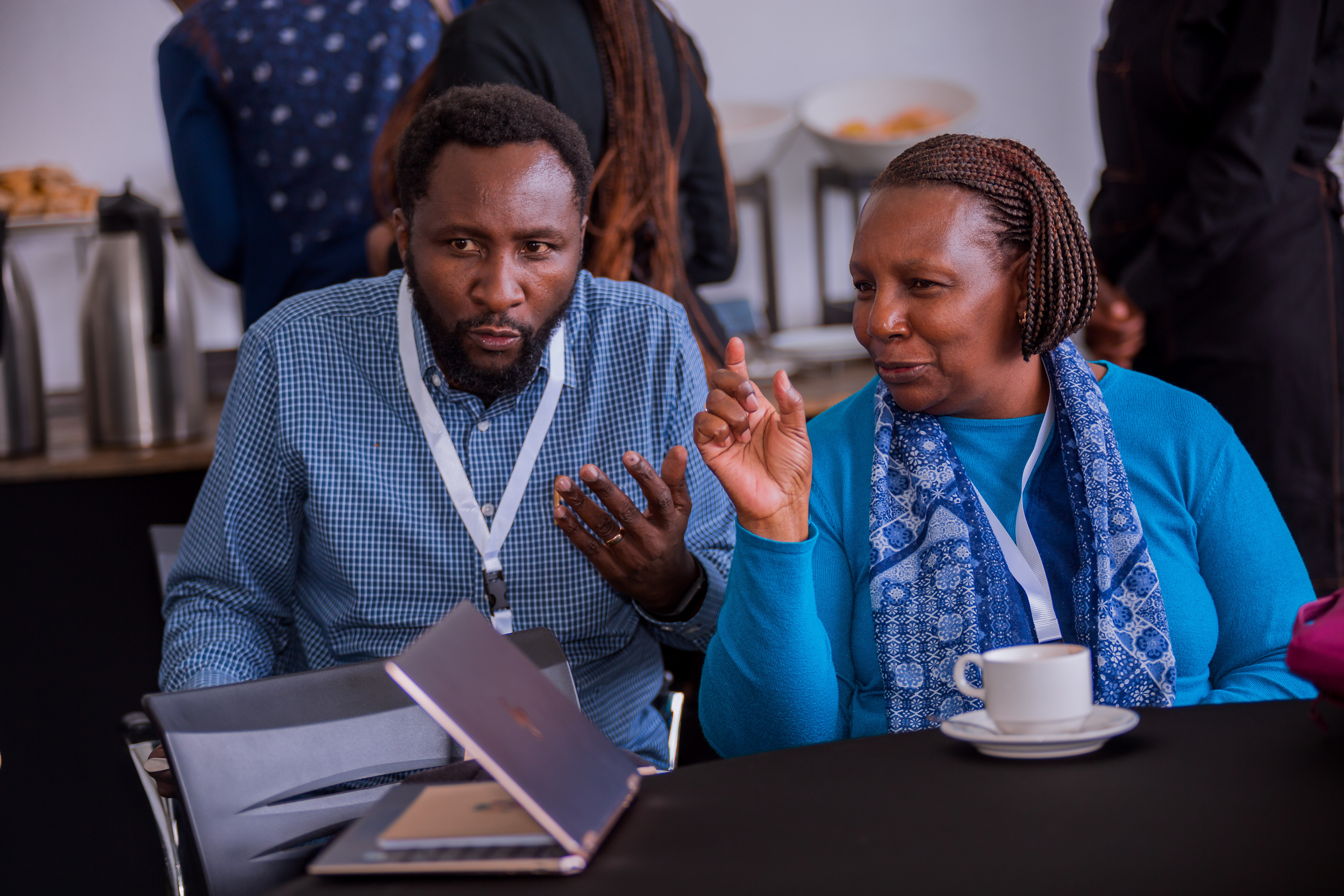
GenderUp: Filling a gap
When agriculture research for development actors aim to scale innovations, understanding how gender and other forms of social differentiation affect the distribution of benefits and risks associated with scaling processes is critically important. Momentum has been building around the concept of social inclusion in scaling. However, there remains a need for a more concentrated effort on not just reaching all innovation users, but also empowering users through the utilization of these innovations.
In response to a need for more intentionally inclusive scaling tools, GenderUp was developed by CGIAR, in collaboration with Wageningen University and Research and the University of California, Davis. It is a discussion-based method that supports innovation teams in scaling agricultural innovations in a gender and socially responsible way. A new article on anticipating the consequences of scaling initiatives has been released in Agricultural Systems. It highlights the theory used to develop content for GenderUp and follows the promising first experiences of two teams who piloted the tool.
To be more effective in improving livelihoods, GenderUp provides methodological support to make scaling initiatives more responsive and anticipatory by focusing on social differentiation and trade-offs faced by various groups of people. This has been reflected in the experiences of various GenderUp workshop participants. One participant from Rwanda noted, “I have gained more [information] about gender inequalities in the use of innovations where the women farmers are less likely to adopt new technologies compared to men farmers and the agricultural innovations can transform gender relations in negative and positive ways.”
To learn more about successful scaling and how GenderUp has been used by innovation teams, check out the blog post on CGIAR’s website.
Growth and improvements
Since its inception, GenderUp has garnered attention from facilitators and innovation teams worldwide. We have valued user feedback as a crucial aspect of our development journey. In response to the invaluable insights shared by our users, we have worked on improving GenderUp’s website and resources. GenderUp is ambitious to continue learning, improving and taking note of the theory underlying its own structure; these challenges have been transformed into learning outcomes that informed GenderUp’s own scaling process. Improvements based on user feedback have specifically been applied to GenderUp’s new website, which houses improved content and resources for facilitators to run efficient and effective workshops.
- Existing facilitators can now access a downloadable set of slides that include learning content, discussion boards and survey links. Having facilitation content in one place as a streamlined workflow both decreases preparation time for facilitators and improves the learning experience for participants.
- The website can now be used as a tool for participants to read through scaling literature, review resources and rewatch videos from the GenderUp training. This improved accessibility to resources will allow for more engagement with participants and decrease the post-workshop time commitment for facilitators.
- Language throughout the GenderUp website and resources has been simplified to be more understandable by all audiences. Social science jargon has been reduced, while more contextually relevant examples have been added. These updates will also allow for the translation of the tool to other languages in the future.
- To accommodate users without stable internet or access to multiple computers, printable materials have been adapted and developed to run a GenderUp workshop without internet and electricity, including surveys and documents for assessing results, workflow slides and flip charts that include questions from the virtual collaboration space called Miro.
Through these improvements, GenderUp at its core has remained focused on identifying the negative consequences that innovations might have on users, and also highlighting the positive outcomes of innovation use as well. This aligns closely with the CGIAR-developed Reach-Benefit-Empower-Transform (RBET) Framework. GenderUp helps innovation teams think beyond solely “reaching” various social groups. Instead, teams are guided to develop strategies that actually benefit and empower innovation users. In this way, GenderUp takes an important step toward transforming gender relations.
Hanna Ewell, a trained GenderUp facilitator, emphasizes the importance of scaling innovations in a way that empowers all social groups: “Let’s build on this momentum to not let gender and social inclusion remain a tick box exercise and rely on counting women in trainings, however, but rather be intentional about asking: for and with whom are we innovating? Only if all people are included, can we see agricultural research for development catalyzing impacts and supporting effectively those beneficiaries most in need of groundbreaking science.”
Opportunities to engage
Has this blog brought about additional questions or sparked an interest in engaging, or re-engaging with GenderUp? Visit the GenderUp Contact Us page on the website to get in touch, express interest in joining an upcoming facilitator training and learn how these updates can benefit you and your team!
Additionally, we invite you to join a webinar on February 15, 2024, at 7 a.m. PST/3 p.m. UTC. In this webinar, you will hear about the impact GenderUp has had on the scaling strategies of innovation teams who have gone through the workshop. We will do a walk-through demonstration of the website to help you uncover more resources and information. Time will also be reserved to hear your thoughts on how GenderUp can be utilized by your team and continue evolving in an impactful way. If you are interested in attending the webinar, please fill out the webinar registration.

